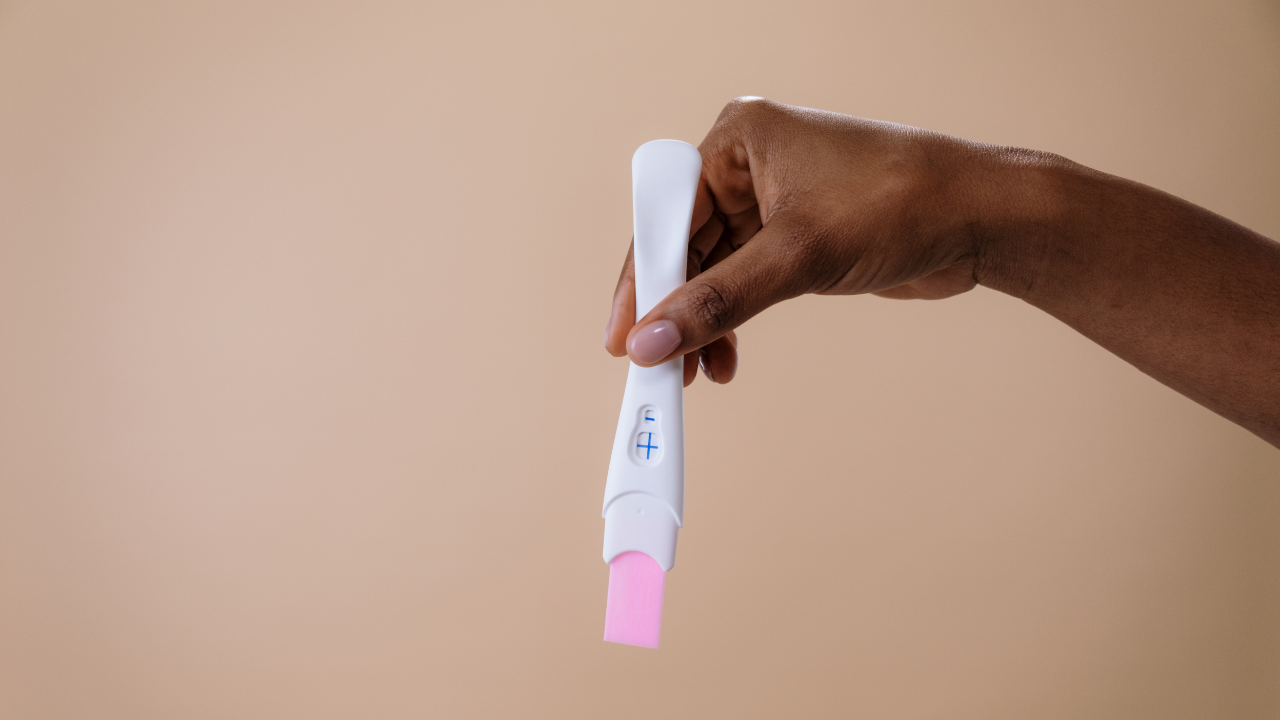Vital Insights: Neonatal Microbiota Development and Infant Health
Discover essential factors in neonatal microbiota development, including the impact of delivery mode, maternal diet, and more on infant gut health and long-term implications.

Key Points
- Neonatal Microbiota Development: The article discusses how a baby's gut microbiota begins to develop from birth, emphasizing the critical impact of the maternal microbial environment and the birth process, including natural and C-section deliveries, in establishing the infant's initial bacterial colonies.
- Influences of Diet and Environment on Infant Gut Microbiota: It highlights the significant role of a mother's diet and the surrounding environment in sculpting the infant's gut microbiota.
- The article also touches on how breast milk, as a rich source of nutrients and maternal microbes, shapes the baby's gut health.
- Mode of Delivery's Impact on Neonatal Microbiome: The article explores how the mode of delivery, whether vaginal or cesarean, influences the initial microbial community of the infant, with potential long-term health implications.
- Maternal Diet's Effect on Infant Gut Microbiota: The piece details how the composition of an infant's gut microbiota is directly affected by the mother's diet, especially during lactation, and emphasizes the importance of a balanced diet for the development of the infant's microbiome.
- Health Implications of Dominant Infant Gut Microbiota Populations: The article delves into the health implications of the dominant populations within an infant's gut microbiota, discussing how these microbial communities influence everything from digestion to immunity and potentially shape the child's health trajectory.
In This Article:
The Building Blocks of Baby's Gut Health: Understanding Neonatal Microbiota Development
The Dawn of Digestive Health: Newborns and Gut Bacteria

From the moment of birth, neonatal microbiota development begins, shaping the infant's gut ecosystem.
This world, known as the neonatal microbiota, is intricately linked to the mother's own microbial environment, particularly impacting the infant's gut microbiota's early stages.
The mode of delivery, natural or C-section, significantly influences the neonatal microbiome in seeding a newborn's gut with its first bacterial colonies A Trusted Source Rodriguez JM, Murphy K, Stanton C, Ross RP, Kober OI, Juge N, et al. The Composition of the Gut Microbiota Throughout Life, With an Emphasis on Early Life. Microb Ecol Health Dis (2015) 26:26050. doi: 10.3402/mehd.v26.26050 PubMed AbstractCrossRef Full TextGoogle Scholar A Trusted Source Korpela K, de Vos WM. Early Life Colonization of the Human Gut: Microbes Matter Everywhere. Curr Opin Microbiol (2018) 44:70–8. doi: 10.1016/j.mib.2018.06.003 PubMed AbstractCrossRef Full TextGoogle Scholar.
Mother Nature's First Gift: The Influence of Maternal Microbes
As newborns traverse the birth canal, critical factors shaping infant gut microbiota begin to play a role, with Lactobacillus from the mother's vaginal microbiota being one of the first to colonize,
setting the stage for a robust digestive ecosystem A Trusted Source Dominguez-Bello MG, Costello EK, Contreras M, Magris M, Hidalgo G, Fierer N, et al. Delivery Mode Shapes the Acquisition and Structure of the Initial Microbiota Across Multiple Body Habitats in Newborns. Proc Natl Acad Sci USA (2010) 107(26):11971–5. doi: 10.1073/pnas.1002601107 PubMed AbstractCrossRef Full TextGoogle Scholar A Trusted Source Tamburini S, Shen N, Wu HC, Clemente JC. The Microbiome in Early Life: Implications for Health Outcomes. Nat Med (2016) 22(7):713–22. doi: 10.1038/nm.4142 PubMed AbstractCrossRef Full TextGoogle Scholar.
This initial microbial mix is not only diverse but also stable and lasting, providing the infant with a baseline of beneficial bacteria.
Infant Gut Microbiota: A Dynamic Development
In the early days, an infant's gut is a bustling hub of aerobic bacteria.
But as they grow, these are gradually replaced by the anaerobic types typical in adults A Trusted Source Clemente JC, Ursell LK, Parfrey LW, Knight R. The Impact of the Gut Microbiota on Human Health: An Integrative View. Cell (2012) 148(6):1258–70. doi: 10.1016/j.cell.2012.01.035 PubMed AbstractCrossRef Full TextGoogle Scholar.
By the third day post-birth, a cast of new characters emerges, with Clostridia, Bacteroides, and Bifidobacterium taking center stage.
By the first week, Bifidobacterium dominates, only to find competition from Bacteroides as the baby approaches weaning A Trusted Source Mitsuoka T. Intestinal Flora and Human Health. Asia Pac J Clin Nutr (1996) 5(1):2–9. PubMed AbstractGoogle Scholar.
Shaping a Child's Future Health: Diet and Environment
Maternal diet is a key factor in shaping the infant's gut microbiota, influencing its early development.
This miniature ecosystem adapts and grows, moving toward the complex diversity of an adult's gut microbiota within the first few years of life, influenced by the introduction of solid foods A Trusted Source Clemente JC, Ursell LK, Parfrey LW, Knight R. The Impact of the Gut Microbiota on Human Health: An Integrative View. Cell (2012) 148(6):1258–70. doi: 10.1016/j.cell.2012.01.035 PubMed AbstractCrossRef Full TextGoogle Scholar.
Breastfeeding Nutritional Guides: Our comprehensive guides offer nutritional advice for lactating mothers to enrich breast milk, promoting optimal infant gut health.
From First Breath to First Steps: Nurturing the Infant Gut Microbiota
The Birth of Gut Health: How Delivery Shapes Baby's Microbiome
Welcome to the microscopic universe of the infant gut, where the very first inhabitants are crucial settlers, shaping a baby's lifelong health.
At the heart of this colonization are the neonatal microbiota, a community of microorganisms influenced heavily by how a baby is born A Trusted Source Avershina E, Lundgard K, Sekelja M, Dotterud C, Storro O, Oien T, et al. Transition From Infant- to Adult-Like Gut Microbiota. Environ Microbiol (2016) 18(7):2226–36. doi: 10.1111/1462-2920.13248 PubMed AbstractCrossRef Full TextGoogle Scholar A Trusted Source Avershina E, Storro O, Oien T, Johnsen R, Wilson R, Egeland T, et al. Bifidobacterial Succession and Correlation Networks in a Large Unselected Cohort of Mothers and Their Children. Appl Environ Microbiol (2013) 79(2):497–507. doi: 10.1128/AEM.02359-12 PubMed AbstractCrossRef Full TextGoogle Scholar.
Babies born through vaginal delivery inherit a microbiota similar to their mother's vaginal community, rich in Lactobacillus.
In contrast, cesarean deliveries impart a skin-like microbiota, with Staphylococcus taking the lead A Trusted Source Dominguez-Bello MG, Costello EK, Contreras M, Magris M, Hidalgo G, Fierer N, et al. Delivery Mode Shapes the Acquisition and Structure of the Initial Microbiota Across Multiple Body Habitats in Newborns. Proc Natl Acad Sci USA (2010) 107(26):11971–5. doi: 10.1073/pnas.1002601107 PubMed AbstractCrossRef Full TextGoogle Scholar A Trusted Source Montoya-Williams D, Lemas DJ, Spiryda L, Patel K, Carney OO, Neu J, et al. The Neonatal Microbiome and Its Partial Role in Mediating the Association Between Birth by Cesarean Section and Adverse Pediatric Outcomes. Neonatology (2018) 114(2):103–11. doi: 10.1159/000487102 PubMed AbstractCrossRef Full TextGoogle Scholar.

This early difference has lasting effects, with cesarean births often linked to a decrease in microbial diversity and potential health concerns like asthma and obesity A Trusted Source Akagawa S, Tsuji S, Onuma C, Akagawa Y, Yamaguchi T, Yamagishi M, et al. Effect of Delivery Mode and Nutrition on Gut Microbiota in Neonates. Ann Nutr Metab (2019) 74(2):132–9. doi: 10.1159/000496427 PubMed AbstractCrossRef Full TextGoogle Scholar A Trusted Source Stinson LF, Payne MS, Keelan JA. A Critical Review of the Bacterial Baptism Hypothesis and the Impact of Cesarean Delivery on the Infant Microbiome. Front Med (Lausanne) (2018) 5:135. doi: 10.3389/fmed.2018.00135 PubMed AbstractCrossRef Full TextGoogle Scholar.
The Timing of Arrival: Gestational Age and Microbial Tenants
The timing of a baby's entrance into the world also sets the stage for microbial diversity.
Preterm infants, in particular, face unique challenges, as their gut microbiota may lack beneficial Bacteroides and Bifidobacterium,
making them more susceptible to inflammation and infection A Trusted Source Hill CJ, Lynch DB, Murphy K, Ulaszewska M, Jeffery IB, O’Shea CA, et al. Evolution of Gut Microbiota Composition From Birth to 24 Weeks in the INFANTMET Cohort. Microbiome (2017) 5(1):4. doi: 10.1186/s40168-016-0213-y PubMed AbstractCrossRef Full TextGoogle Scholar A Trusted Source Arboleya S, Sanchez B, Solis G, Fernandez N, Suarez M, Hernandez-Barranco AM, et al. Impact of Prematurity and Perinatal Antibiotics on the Developing Intestinal Microbiota: A Functional Inference Study. Int J Mol Sci (2016) 17(5):649. doi: 10.3390/ijms17050649 CrossRef Full TextGoogle Scholar.
Infant Probiotic Supplements: Enhance your baby's gut health with our specially formulated probiotic supplements, designed to nurture healthy neonatal microbiota.
Mother's Milk: A Dietary Bridge to Microbial Balance
Breast milk's composition, influenced by maternal diet, plays a crucial role in neonatal microbiota development,
particularly enhancing populations of Bifidobacterium in breastfed infants A Trusted Source O’Sullivan A, Farver M, Smilowitz JT. The Influence of Early Infant-Feeding Practices on the Intestinal Microbiome and Body Composition in Infants. Nutr Metab Insights (2015) 8(Suppl 1):1–9. doi: 10.4137/NMI.S29530 PubMed AbstractCrossRef Full TextGoogle Scholar A Trusted Source Bezirtzoglou E, Tsiotsias A, Welling GW. Microbiota Profile in Feces of Breast- and Formula-Fed Newborns by Using Fluorescence. Situ Hybridization (FISH) Anaerobe (2011) 17(6):478–82. doi: 10.1016/j.anaerobe.2011.03.009 CrossRef Full TextGoogle Scholar.
It's not just the nutrients, but also the maternal microbes and immune-modulating factors like IgA and human milk oligosaccharides (HMOs) that shape a baby's gut health A Trusted Source Maynard CL, Elson CO, Hatton RD, Weaver CT. Reciprocal Interactions of the Intestinal Microbiota and Immune System. Nature (2012) 489(7415):231–41. doi: 10.1038/nature11551 PubMed AbstractCrossRef Full TextGoogle Scholar A Trusted Source Bode L, McGuire M, Rodriguez JM, Geddes DT, Hassiotou F, Hartmann PE, et al. It’s Alive: Microbes and Cells in Human Milk and Their Potential Benefits to Mother and Infant. Adv Nutr (2014) 5(5):571–3. doi: 10.3945/an.114.006643PubMed AbstractCrossRef Full TextGoogle Scholar.
Formula-fed babies, on the other hand, see a rise in Bacteroides alongside Bifidobacterium A Trusted Source Harmsen HJ, Wildeboer-Veloo AC, Raangs GC, Wagendorp AA, Klijn N, Bindels JG, et al. Analysis of Intestinal Flora Development in Breast-Fed and Formula-Fed Infants by Using Molecular Identification and Detection Methods. J Pediatr Gastroenterol Nutr (2000) 30(1):61–7. doi: 10.1097/00005176-200001000-00019 PubMed AbstractCrossRef Full TextGoogle Scholar.
The choice of breastfeeding has implications not just for infancy but can influence weight and health into later life A Trusted Source Forbes JD, Azad MB, Vehling L, Tun HM, Konya TB, Guttman DS, et al. Association of Exposure to Formula in the Hospital and Subsequent Infant Feeding Practices With Gut Microbiota and Risk of Overweight in the First Year of Life. JAMA Pediatr (2018) 172(7):e181161. doi: 10.1001/jamapediatrics.2018.1161 PubMed AbstractCrossRef Full TextGoogle Scholar A Trusted Source Alsharairi NA. The Infant Gut Microbiota and Risk of Asthma: The Effect of Maternal Nutrition During Pregnancy and Lactation. Microorganisms (2020) 8(8):1119. doi: 10.3390/microorganisms8081119 CrossRef Full TextGoogle Scholar.
The Influence of Mom's Diet on Baby's Gut
The maternal diet's impact on infant gut microbiota highlights the interconnectedness of maternal and infant health.
The composition of breast milk—and thus the infant gut microbiota—is directly affected by maternal diet A Trusted Source Maher SE, O’Brien EC, Moore RL, Byrne DF, Geraghty AA, Saldova R, et al. The Association Between the Maternal Diet and the Maternal and Infant Gut Microbiome: A Systematic Review. Br J Nutr (2020) 1–29. doi: 10.1017/S0007114520000847 PubMed AbstractCrossRef Full TextGoogle Scholar A Trusted Source Cortes-Macias E, Selma-Royo M, Garcia-Mantrana I, Calatayud M, Gonzalez S, Martinez-Costa C, et al. Maternal Diet Shapes the Breast Milk Microbiota Composition and Diversity: Impact of Mode of Delivery and Antibiotic Exposure. J Nutr (2021) 151(2):330–40. doi: 10.1093/jn/nxaa310 PubMed AbstractCrossRef Full TextGoogle Scholar.
This highlights the importance of a balanced diet during lactation, as it provides the building blocks for the infant's microbiome.
The World Around: Environmental Factors and Microbial Diversity
Environmental factors, including family dynamics, shape the dominant populations within an infant's gut microbiota.
Having older siblings can increase the diversity and abundance of beneficial bacteria like Bifidobacterium A Trusted Source Fouhy F, Ross RP, Fitzgerald GF, Stanton C, Cotter PD. Composition of the Early Intestinal Microbiota: Knowledge, Knowledge Gaps and the Use of High-Throughput Sequencing to Address These Gaps. Gut Microbes (2012) 3(3):203–20. doi: 10.4161/gmic.20169 PubMed AbstractCrossRef Full TextGoogle Scholar A Trusted Source Laursen MF, Zachariassen G, Bahl MI, Bergstrom A, Host A, Michaelsen KF, et al. Having Older Siblings Is Associated With Gut Microbiota Development During Early Childhood. BMC Microbiol (2015) 15:154. doi: 10.1186/s12866-015-0477-6 PubMed AbstractCrossRef Full TextGoogle Scholar.
Geographical location, with its associated dietary and lifestyle patterns, further influences the gut microbiota's development,
as seen in the variations between infants in rural Africa and those in urban settings A Trusted Source Arrieta MC, Stiemsma LT, Amenyogbe N, Brown EM, Finlay B. The Intestinal Microbiome in Early Life: Health and Disease. Front Immunol (2014) 5:427(427). doi: 10.3389/fimmu.2014.00427 PubMed AbstractCrossRef Full TextGoogle Scholar A Trusted Source De Filippo C, Cavalieri D, Di Paola M, Ramazzotti M, Poullet JB, Massart S, et al. Impact of Diet in Shaping Gut Microbiota Revealed by a Comparative Study in Children From Europe and Rural Africa. Proc Natl Acad Sci USA (2010) 107(33):14691–6. doi: 10.1073/pnas.1005963107 PubMed AbstractCrossRef Full TextGoogle Scholar.
Eco-Friendly Baby Products: Choose from our range of eco-friendly baby products, created to ensure a healthy environmental impact on your infant's microbiota development.
Genetic Blueprint: The Role of Host Genetics
Even genetics play a part in this microbial tapestry.
Studies show that genetically identical twins share more microbial similarities than fraternal twins, suggesting a genetic hand in the microbiota's composition A Trusted Source Benson AK, Kelly SA, Legge R, Ma F, Low SJ, Kim J, et al. Individuality in Gut Microbiota Composition Is a Complex Polygenic Trait Shaped by Multiple Environmental and Host Genetic Factors. Proc Natl Acad Sci USA (2010) 107(44):18933–8. doi: 10.1073/pnas.1007028107 PubMed AbstractCrossRef Full TextGoogle Scholar A Trusted Source Ke X, Walker A, Haange SB, Lagkouvardos I, Liu Y, Schmitt-Kopplin P, et al. Synbiotic-Driven Improvement of Metabolic Disturbances Is Associated With Changes in the Gut Microbiome in Diet-Induced Obese Mice. Mol Metab (2019) 22:96–109. doi: 10.1016/j.molmet.2019.01.012 PubMed AbstractCrossRef Full TextGoogle Scholar.
Such findings reveal that the interplay between our genes and our gut bacteria is intricate and influential from the earliest stages of life.

The Infant Microbiome: A Journey from Birth to the First Spoonful
The Infant Microbiome: A Delicate Ecosystem Starting at Birth
From the first wail in the delivery room to the introduction of the first solid foods, an infant's gut microbiota undergoes a profound transformation.
This dynamic and delicate ecosystem's development is influenced by a symphony of factors, each playing a role in the child's future health A Trusted Source Plovier H, Everard A, Druart C, Depommier C, Van Hul M, Geurts L, et al. A Purified Membrane Protein From Akkermansia Muciniphila or the Pasteurized Bacterium Improves Metabolism in Obese and Diabetic Mice. Nat Med (2017) 23(1):107–13. doi: 10.1038/nm.4236 PubMed AbstractCrossRef Full TextGoogle Scholar A Trusted Source Palmer C, Bik EM, DiGiulio DB, Relman DA, Brown PO. Development of the Human Infant Intestinal Microbiota. PloS Biol (2007) 5(7):e177. doi: 10.1371/journal.pbio.0050177 PubMed AbstractCrossRef Full TextGoogle Scholar.
Breastfeeding introduces a wealth of Bifidobacterium to the infant's gut, promoting a healthy microbial balance and offering protection against diseases like obesity and asthma A Trusted Source Bjorksten B, Sepp E, Julge K, Voor T, Mikelsaar M. Allergy Development and the Intestinal Microflora During the First Year of Life. J Allergy Clin Immunol (2001) 108(4):516–20. doi: 10.1067/mai.2001.118130 PubMed AbstractCrossRef Full TextGoogle Scholar A Trusted Source Kalliomaki M, Collado MC, Salminen S, Isolauri E. Early Differences in Fecal Microbiota Composition in Children may Predict Overweight. Am J Clin Nutr (2008) 87(3):534–8. doi: 10.1093/ajcn/87.3.534 PubMed AbstractCrossRef Full TextGoogle Scholar.
Solid Foods: A Fiber-Fueled Milestone
The introduction of solid foods marks another critical milestone, diversifying the gut microbiota A Trusted Source Yao Y, Cai X, Fei W, Ye Y, Zhao M, Zheng C. The Role of Short-Chain Fatty Acids in Immunity, Inflammation and Metabolism. Crit Rev Food Sci Nutr (2020) 1–12. doi: 10.1080/10408398.2020.1854675 PubMed AbstractCrossRef Full TextGoogle Scholar.
and boosting populations of fiber-fermenting bacteria that produce short-chain fatty acids (SCFAs) essential for immunity and metabolism A Trusted Source Koenig JE, Spor A, Scalfone N, Fricker AD, Stombaugh J, Knight R, et al. Succession of Microbial Consortia in the Developing Infant Gut Microbiome. Proc Natl Acad Sci USA (2011) 108 Suppl 1:4578–85. doi: 10.1073/pnas.1000081107 PubMed AbstractCrossRef Full TextGoogle Scholar.
Microbial Populations: The Cast of the Infant Gut
Understanding the health implications of dominant infant gut microbiota populations reveals insights into long-term wellness.
These include Bifidobacteriales and Lactobacillales, which support the development of the infant's immune system A Trusted Source Claesson MJ, Cusack S, O’Sullivan O, Greene-Diniz R, de Weerd H, Flannery E, et al. Composition, Variability, and Temporal Stability of the Intestinal Microbiota of the Elderly. Proc Natl Acad Sci U.S.A. (2011) 108 Suppl 1:4586–91. doi: 10.1073/pnas.1000097107PubMed AbstractCrossRef Full TextGoogle Scholar A Trusted Source Valles Y, Artacho A, Pascual-Garcia A, Ferrus ML, Gosalbes MJ, Abellan JJ, et al. Microbial Succession in the Gut: Directional Trends of Taxonomic and Functional Change in a Birth Cohort of Spanish Infants. PloS Genet (2014) 10(6):e1004406. doi: 10.1371/journal.pgen.1004406 PubMed AbstractCrossRef Full TextGoogle Scholar.
The Key Players in Infant Gut Health
Bifidobacteria: The Benevolent Bacteria
Bifidobacteria, the earliest colonizers, are passed from mother to child, playing a pivotal role in digesting human milk oligosaccharides (HMOs) A Trusted Source Alcon-Giner C, Dalby MJ, Caim S, Ketskemety J, Shaw A, Sim K, et al. Microbiota Supplementation With Bifidobacterium and Lactobacillus Modifies the Preterm Infant Gut Microbiota and Metabolome: An Observational Study. Cell Rep Med (2020) 1(5):100077. doi: 10.1016/j.xcrm.2020.100077 PubMed AbstractCrossRef Full TextGoogle Scholar.
and shaping the infant's gut microbiota for long-term health A Trusted Source Milani C, Mancabelli L, Lugli GA, Duranti S, Turroni F, Ferrario C, et al. Exploring Vertical Transmission of Bifidobacteria From Mother to Child. Appl Environ Microbiol (2015) 81(20):7078–87. doi: 10.1128/AEM.02037-15 PubMed AbstractCrossRef Full TextGoogle Scholar
Lactobacillus: The Early Arriver
Lactobacillus species, abundantly present in the infant's gut right after birth, A Trusted Source Thongaram T, Hoeflinger JL, Chow J, Miller MJ. Human Milk Oligosaccharide Consumption by Probiotic and Human-Associated Bifidobacteria and Lactobacilli. J Dairy Sci (2017) 100(10):7825–33. doi: 10.3168/jds.2017-12753PubMed AbstractCrossRef Full TextGoogle Scholar.
play a crucial role in the infant's gut health and are particularly adept at fermenting HMOs A Trusted Source Nagpal R, Tsuji H, Takahashi T, Kawashima K, Nagata S, Nomoto K, et al. Sensitive Quantitative Analysis of the Meconium Bacterial Microbiota in Healthy Term Infants Born Vaginally or by Cesarean Section. Front Microbiol (2016) 7:1997. doi: 10.3389/fmicb.2016.01997 PubMed AbstractCrossRef Full TextGoogle Scholar.

Clostridium: The Double-Edged Sword
While some Clostridium species can be pathogenic, others are common settlers in the infant intestine, A Trusted Source Maurice CF, Haiser HJ, Turnbaugh PJ. Xenobiotics Shape the Physiology and Gene Expression of the Active Human Gut Microbiome. Cell (2013) 152(1-2):39–50. doi: 10.1016/j.cell.2012.10.052 PubMed AbstractCrossRef Full TextGoogle Scholar.
contributing to microbial balance and potentially offering protection against colonization by harmful pathogens A Trusted Source Kiu R, Caim S, Alcon-Giner C, Belteki G, Clarke P, Pickard D, et al. Preterm Infant-Associated Clostridium Tertium, Clostridium Cadaveris, and Clostridium Paraputrificum Strains: Genomic and Evolutionary Insights. Genome Biol Evol (2017) 9(10):2707–14. doi: 10.1093/gbe/evx210 PubMed AbstractCrossRef Full TextGoogle Scholar
Bacteroides: The Complex Contributor
Bacteroides, influenced by both the mode of delivery and diet, A Trusted Source Gregory KE, LaPlante RD, Shan G, Kumar DV, Gregas M. Mode of Birth Influences Preterm Infant Intestinal Colonization With Bacteroides Over the Early Neonatal Period. Adv Neonatal Care (2015) 15(6):386–93. doi: 10.1097/ANC.0000000000000237 PubMed AbstractCrossRef Full TextGoogle Scholar
contribute to the diversity of the infant gut microbiota and are involved in the digestion of complex carbohydrates, including HMOs A Trusted Source Chia LW, Mank M, Blijenberg B, Aalvink S, Bongers RS, Stahl B, et al. Bacteroides Thetaiotaomicron Fosters the Growth of Butyrate-Producing Anaerostipes Caccae in the Presence of Lactose and Total Human Milk Carbohydrates. Microorganisms (2020) 8(10):1513. doi: 10.3390/microorganisms8101513 CrossRef Full TextGoogle Scholar.
The Lesser-Known but Significant Microbial Members
Veillonella and Streptococcus: The Quiet Influencers
Veillonella and Streptococcus are part of the infant gut microbiota's background, A Trusted Source Feng D, Neuweiler I, Nogueira R, Nackenhorst U. Modeling of Symbiotic Bacterial Biofilm Growth With an Example of the Streptococcus-Veillonella Sp. System. Bull Math Biol (2021) 83(5):48. doi: 10.1007/s11538-021-00888-2 PubMed AbstractCrossRef Full TextGoogle Scholar
sometimes playing roles in disease but also contributing to the microbial diversity essential for health A Trusted Source Cassidy-Bushrow AE, Sitarik A, Levin AM, Lynch SV, Havstad S, Ownby DR, et al. Maternal Group B Streptococcus and the Infant Gut Microbiota. J Dev Orig Health Dis (2016) 7(1):45–53. doi: 10.1017/S2040174415001361 PubMed AbstractCrossRef Full TextGoogle Scholar.
Collinsella and Akkermansia: The Understated Residents
Though not as dominant, Collinsella and Akkermansia represent important components of the infant microbiota, A Trusted Source 162. Kageyama A, Benno Y, Nakase T. Phylogenetic and Phenotypic Evidence for the Transfer of Eubacterium Aerofaciens to the Genus Collinsella as Collinsella Aerofaciens Gen. Nov., Comb. Nov. Int J Syst Bacteriol (1999) 49 Pt 2:557–65. doi: 10.1099/00207713-49-2-557PubMed AbstractCrossRef Full TextGoogle Scholar
with Akkermansia's role becoming more pronounced after weaning, influencing obesity and diabetes outcomes A Trusted Source 168. Everard A, Belzer C, Geurts L, Ouwerkerk JP, Druart C, Bindels LB, et al. Cross-Talk Between Akkermansia Muciniphila and Intestinal Epithelium Controls Diet-Induced Obesity. Proc Natl Acad Sci USA (2013) 110(22):9066–71. doi: 10.1073/pnas.1219451110PubMed AbstractCrossRef Full TextGoogle Scholar.
Books on Infant Gut Health: Explore the world of infant gut health with our educational books, providing invaluable insights into nurturing your baby's microbiota.
The Infant Microbiome: A Dynamic Foundation for Life
The infant microbiome is a complex, evolving world, starting from birth.
Influenced by the mode of delivery, gestational age, maternal diet, and breastfeeding, it lays the foundation for an individual's lifelong health trajectory.
As infants grow and their diets change, so too does their microbiota, adapting to new nutritional inputs and environmental exposures.
Understanding these microbial beginnings is crucial.
They set the stage for a child's health, influencing everything from digestion to immunity.
It's a reminder of the interconnectedness of our bodies and environments and the profound ways in which our earliest experiences shape us.
As research continues, each finding adds a piece to the puzzle of human health, starting with the tiniest of organisms in the infant's gut.
Discussion
Interplay Between Neonatal Microbiota and Long-term Health: Discuss how the neonatal gut microbiota, established early in life, can have lasting health implications, potentially influencing the child’s immunity, metabolism, and even neurological development.
Comparative Analysis of Vaginal vs. Cesarean Birth: Examine how the mode of delivery impacts neonatal microbiota, with a focus on the differences in microbial diversity between vaginal and cesarean births and their subsequent health outcomes.
Maternal Diet and Microbiota Transmission: Delve into the relationship between maternal diet, breast milk composition, and their influence on shaping the infant’s gut microbiota, emphasizing the importance of a balanced maternal diet for optimal microbial diversity.
Environmental Factors and Microbial Exposure: Explore the role of environmental factors, such as the presence of siblings, pets, and overall household microbial diversity, in influencing the infant's gut microbiota.
Conclusion
Crucial Role of Early Microbial Exposure: Conclude by highlighting the critical importance of early-life microbial exposure in shaping the infant's gut microbiota and its long-term health implications.
Recommendations for Maternal Health Practices: Emphasize recommendations for expectant mothers, such as maintaining a healthy diet and considering the mode of delivery, to positively influence their infant’s gut microbiota development.
Potential for Future Research: Suggest areas for future research, particularly in understanding the mechanisms linking neonatal microbiota to long-term health outcomes and the potential for interventions in cases of cesarean deliveries or maternal dietary restrictions.
Public Health Implications: Discuss the broader public health implications of the findings, including the need for awareness among healthcare providers and parents about the importance of early microbial colonization and its impact on children’s health.
Review date not set.
How we reviewed this article:
Latest on:





